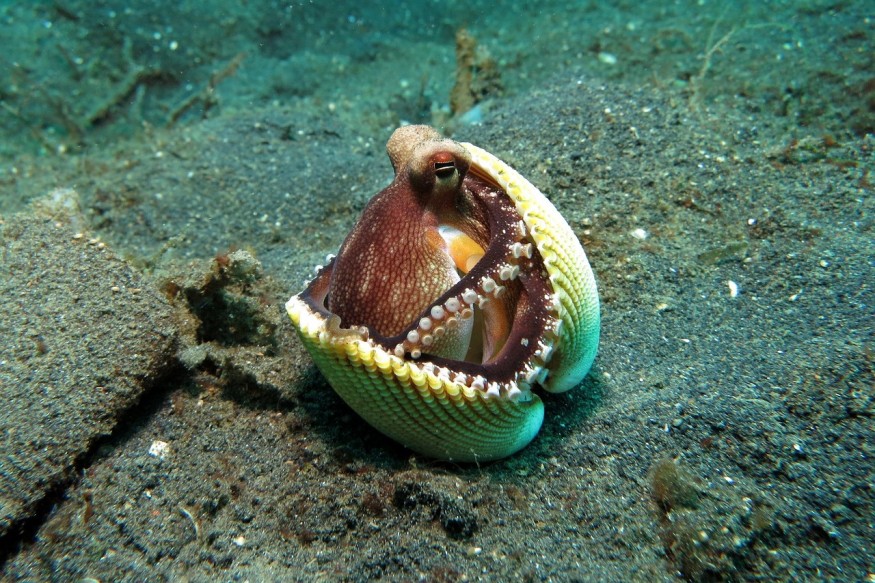Octopuses are some of the most strange-looking sea creatures in the world. Known for their vicious body and eight appendages, which many people consider as 'octopus tentacles' but they are only limbs of arms of the invertebrate marine animal.
While octopuses have arms, other cephalopods have either limbs or tentacles and some possess both, according to experts.
Despite the resemblance of cephalopod arms to tentacles, there are certain morphological variations. One of the most evident differences is that octopus arms have suction cups or suckers across them, while tentacles do not have any suckers except those near the end of its limb.
Regardless, both appendages help the animals navigate through the oceans and handle prey.
What are Cephalopods?

Cephalopods are sea animals belonging to the phylum Mollusca and class Cephalopoda which includes octopuses, squids, cuttlefishes, or nautiluses. Their appearance is often characterized with having a bilateral body symmetry, flexible body, and set of appendages (either arms or tentacles).
The intelligent ocean-dwelling group cephalopods are known for being adept in hiding and catching prey. Prior to this, the creatures relied on their shells during the early stage of their evolution. They eventually lost their outer shell and developed the said survival skills that we see today, according to the Smithsonian Institution.
Among the cephalopods, the giant squid is the largest of them, with a size larger than a school bus. The smallest members of the group include the pygmy squid and California lilliput octopus, the institution outlines.
Tentacles vs. Arms
As mentioned earlier, the difference between tentacles and arms among cephalopods is the presence and number of suction cups on their appendages.
Cephalopods are ancient animals with their first relative emerging during the geologic period beyond 485 million years ago, a time before dinosaurs and sharks event existed, according to the University of California, San Diego.
The evolutionary mechanism behind the octopus arms and tentacles remain unclear. However, we also know that these appendages are used by the sea creatures to sense their surrounding environment, especially during hunting and foraging.
Are Octopuses Dangerous?
Octopuses, in general, are not lethal to humans. However, there are several species of blue-ringed octopus that can carry enough venom to kill people. These deadly octopuses can bite or inject their venom to its victims when they feel threatened, according to the Field Museum.
Fatal octopus attacks are very rare but they do occur. Only a handful of people have actually died from a blue-ringed octopus, which are not aggressive but will respond under threat, WebMD says. Similar to other octopuses, the blue-ringed octopus also has eight arms covered in suckers.
In March 2023, reports about a woman in her 30s suffered multiple bites from a suspected blue-ringed octopus in Australia. The incident occurred while the woman was swimming along the north shore of Sydney. The attack started when the victim picked up a shell where the octopus was hiding. It then fell off and bit her on the stomach, The Guardian reported.
© 2025 NatureWorldNews.com All rights reserved. Do not reproduce without permission.





